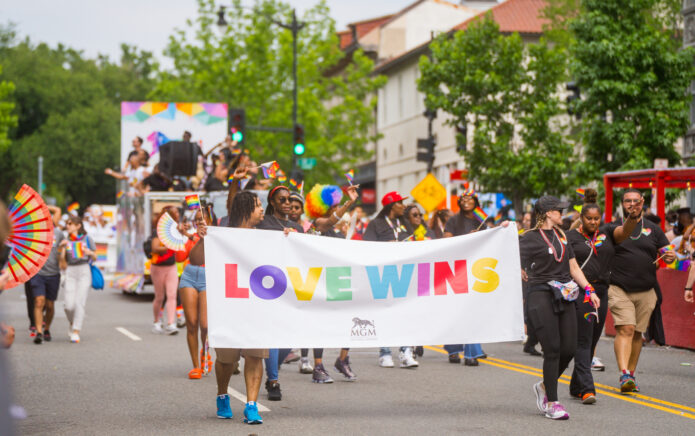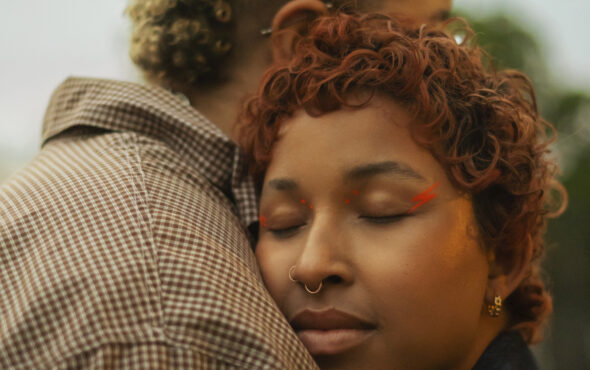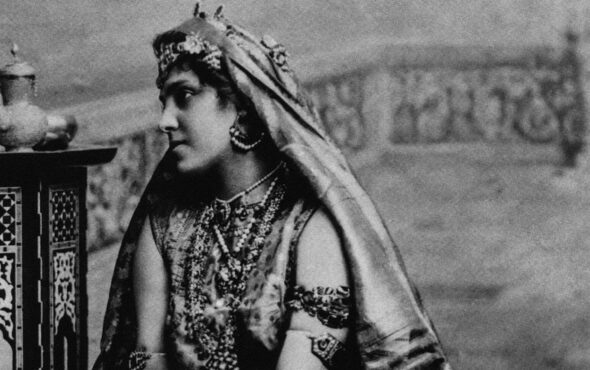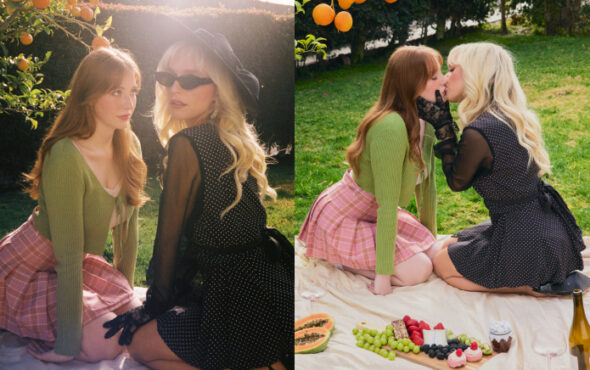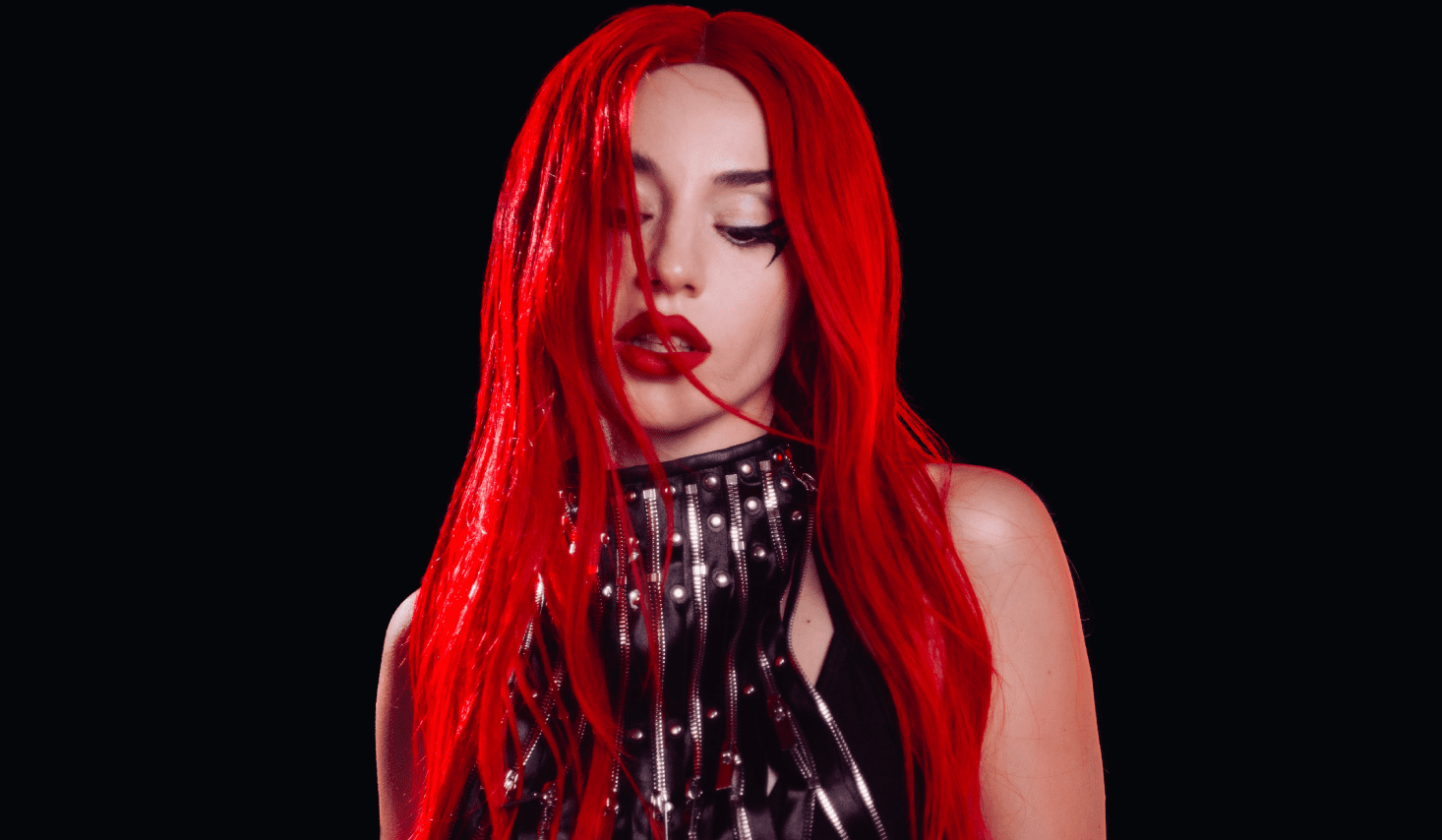
Pop purist Ava Max is back. After the international success of her debut record, Heaven & Hell, the American singer-songwriter has returned to leave her glitzy, sparkling stamp on the music industry. With a breakup in her arsenal, the Kings & Queens singer was ready to wash the heartbreak with catchy dance tunes. “I went through something really personal in my life that couldn’t be shared because it was all that I was dealing with,” Max shares over Zoom.
Refreshed and ready to open up about her past experiences, Ava is feeling “excited” about her “personal” album direction. As the musician’s long-awaited sophomore record, Diamonds & Dancefloors, hits the airways, GAY TIMES catches up with Max to learn more about the inspiration behind her album and how she is ready to dance away a bad time.
Diamonds & Dancefloors marks your second full-length record and you’ve described it as an opportunity for you to be openly vulnerable. Why was that creative direction important to you?
[After] everything you hear has happened to me, is happening to me or will happen to me. It’s like, extremely personal. I definitely feel like the songs on the album, lyrically, are sad, but I wanted to keep it a little upbeat with the music. That’s why the title is Diamonds and Dancefloors, because it’s meant to be listened to on a dance floor, and maybe while you’re crying at the same time with a drink in your hand.
Putting out an album that means a lot to do. What are your favourite lyrics from the record?
Oh, ‘one of us would die for love, one of us would give it up’ — that makes me tear up instantly because it’s something I’ve felt during this breakup. It’s the status reality and I feel like a lot of people can relate to it as well.
Diamonds & Dancefloors channels a lot of strength through its pure pop dance sound. For you, what is it that makes the dance floor such an empowering place to be?
They’re a place where you can just forget about all your worries. You can forget about everything that’s bothering you, the breakup, the heartbreak, and everything else. You can let loose, have fun with your friends, relax and have a good time. It’s therapeutic to dance.
When you think of dancefloors, do you have a favourite dance memory?
I actually remember, on my 20th birthday, I got a party bus with all of my friends. We went to this club, and we were just dancing for so long. One of my friends was going through a breakup during the time and she was really upset. It made her so happy that we were dancing and I could just see her face. We were all there for her and we danced the night away. The next morning, we were really hungover, but it was worth it.
What’s your favourite type of dancefloor music?
Definitely 90s music. All 90s music pop, R&B, rap music and some Gwen Steffani for sure.
You gained international recognition for your hits Sweet But Psycho, The Motto and more – you’re now on your next big project. What do you want people to take away from your new era?
I hope, if they’re going through anything in their lives, that they feel empowered, and they’re coming out stronger on the other end and they feel like they can just forget about anyone who did them wrong. I also hope they can just dance, dance and dance and feel happy every single day listening to this music and not have a worry in their mind.
What’s the biggest lesson you learned about yourself while creating this album?
Hmm… the biggest lesson I learned while creating this album. I made a lot of music for it and I tried so many different genres. So, maybe don’t try that many genres, because I’ve made a lot! And now I’m sad, I can’t put them out.
What kind of genres did you experiment with?
I put a lot of R&B production behind some of the music and I love the music, but it didn’t really fit that album. I was feeling different and I made a really crazy rock song. I was really angry that day like I was screaming into the microphone.
We would love to hear a rock song from you…
No, I need to just put it out.
Your record comes across as an ode to dance-pop. How did you approach this album to make it stylistically coherent?
It’s all pop, but each song has a different influence. For instance, Ghost has a little bit of 90s house, One Of Us and Weapons sounds a bit like Kings & Queens. It’s kind of different influences. Million Dollar Baby and Sleepwalker, are like sisters, they’re kind of like Michael Jackson’s production-ish. So, they’re still in the pop realm and the lyrical message is threaded through the entire album.
You’ve worked with some incredible collaborations and creatives. Who’s next on your radar?
Post Malone, for sure.
You’ve said you don’t like to be labelled or put in a box when it comes to your music or identity. What does it mean for artists to have the freedom to define themselves any way they want?
I think that’s amazing. It’s important and I think they need to do what their heart wants to do and what their soul tells them they should do. You shouldn’t conform to anyone else’s standards.
You’ve become an icon in the LGBTQ+ community – why do you think your music resonates with that community in such a striking way?
I’m definitely not afraid to say what I want to say. I hope to include everyone, every single time. I always think about everyone, including everybody. I don’t want it to feel like it’s targeted towards one specific… it’s music for everybody. It’s important to be a nice and kind person. And a song like Weapons has a message of not spreading hate.
Last of all, what did you enjoy most about creating your record?
I loved the process of being in the studio, making so many songs working with Cirkut, who’s an incredible producer and working with all the songwriters I collaborated with. Just putting our heads together and formulating each song. It was so memorable.
Diamonds & Dancefloors is available to stream and buy now.
